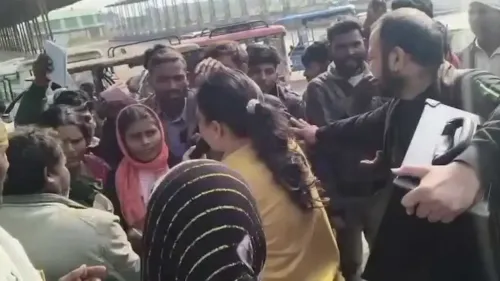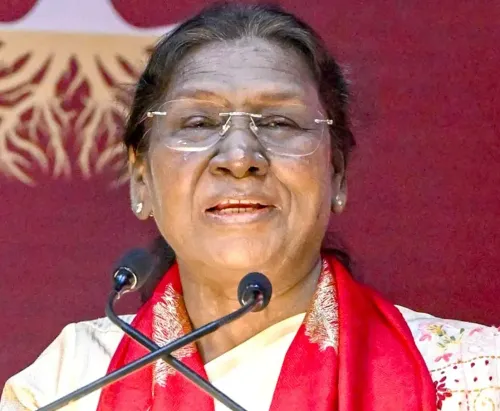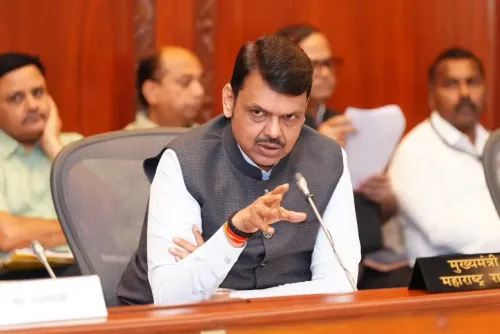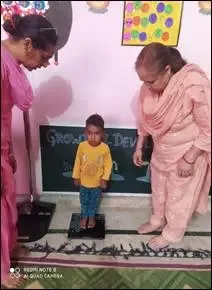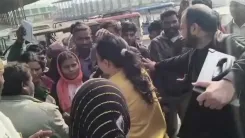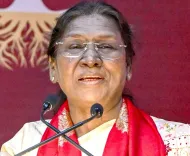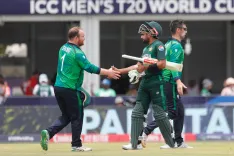Did ECI Invite Rahul Gandhi to Address His Concerns on Maharashtra Assembly Polls?
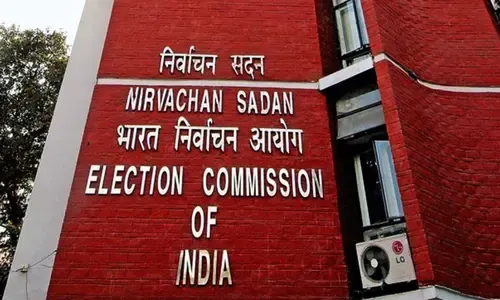
Synopsis
Key Takeaways
- The ECI has invited Rahul Gandhi to discuss concerns about the Maharashtra Assembly elections.
- Gandhi's allegations include claims of election 'match-fixing'.
- The ECI stresses compliance with electoral laws in conducting elections.
- A meeting can be arranged for further clarification of issues raised.
- The importance of transparency in elections is highlighted.
New Delhi, June 24 (NationPress) The Election Commission of India (ECI) has reached out to Congress leader Rahul Gandhi to address his concerns regarding the integrity of last year’s Maharashtra Assembly elections. This invitation follows Gandhi's recent editorial in a newspaper that questioned the neutrality of the election authority.
In a letter from ECI Secretary Ashwani Kumar Mohal, he reminded Gandhi of previous efforts made by the Commission to resolve his party's uncertainties about the electoral rolls and voting rates during the Assembly elections. The letter encourages Gandhi to communicate specific issues for further clarification, as reported by sources.
“In light of your article published in the Indian Express on June 7 concerning the Maharashtra Assembly elections conducted last year, I am instructed to remind you that similar concerns were previously voiced by the Indian National Congress (INC) following the November 2024 elections. The Commission provided a comprehensive response to the INC on December 24, 2024, which is available on the ECI website,” Mohal noted, according to sources.
The ECI has also proposed a meeting with Gandhi to discuss the claims he made regarding 'fixed elections' and the unavailability of CCTV footage of the voting process.
Offering to arrange a meeting at a mutually convenient time, Mohal stated that Gandhi could also suggest his preferred timing through email correspondence with the ECI.
The ECI official aimed to dispel claims of a 'fixed election' by asserting, “All elections are conducted by the Election Commission of India in strict accordance with electoral laws enacted by Parliament, alongside rules and directives issued by the Commission.”
“As you are aware, the entire election process is executed in a decentralized manner at the Assembly Constituency level,” he emphasized, reiterating that the Maharashtra elections engaged over 1,00,186 Booth Level Officers (BLOs), 288 Electoral Registration Officers (EROs), 139 General Observers, 41 Police Observers, 71 Expenditure Observers, and 288 Returning Officers (ROs) appointed by the Commission, as well as 1,08,026 Booth Level Agents (BLAs) from various political parties, including 28,421 from the INC across Maharashtra.
The ECI official also questioned why legitimate grievances regarding the Maharashtra Assembly elections, which the Congress and its allies lost, were not brought up during court election petitions.
“We assume that any concerns regarding election conduct would have been addressed through election petitions filed in the appropriate court by Congress candidates,” stated the official, as per sources.
Nevertheless, if there are still unresolved issues, he encouraged Gandhi to reach out, emphasizing that the Commission is open to meeting in person to discuss all matters. A preferred date and time can be communicated via the email address clection@eci.gov.in, according to the letter sent to Gandhi.
In his editorial earlier this month, Gandhi reiterated his claims of “match-fixing” in the November 2024 Maharashtra elections.
Just last week, he once again targeted the ECI, stating on X, “It is evident - the match is rigged. A rigged election is detrimental to democracy.”
The Leader of the Opposition in the Lok Sabha alleged that the attempts made by Opposition parties to obtain information on voter lists and CCTV footage of voting were met with obstacles, raising suspicions about the entire process being manipulated.
However, sources within the poll panel clarified that maintaining voter privacy and security is non-negotiable, and voting video footage cannot be disclosed to political entities or any petitioners unless mandated by a competent court.


